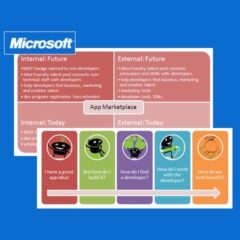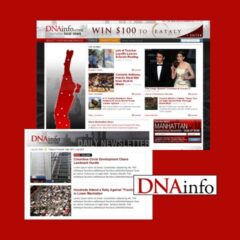Nov27
I’m a habitual bedtime reader—especially my daughter’s bedtime. I’ve been reading to her almost every night for what is coming up on 10 years; since she was almost 10 months old. We have gone from Sandra Boynton to Dr. Seuss, from all the Magic Treehouse books to countless American Girl books, from timeless classics like the Little House on the Prairie series to fantasy classics like The Hobbit and of course Harry Potter. I dread the day, and I know it’s coming soon, when she’s too old for bedtime stories. Read the series: “The Miranda Proposal: Tomorrow’s eBook Platform”: Prologue part 1 part 2 part 3 part 4 part 5 part 6 part 7 Epilogue A few years ago we purchased our first Kindle, and then an iPad. My daughter and I both like paper books, especially hardcovers, but we have grown comfortable with eBooks. I personally find them easier on the eyes, not to mention far more convenient while traveling (some of those Potter books are over 900 pages). A little over two years ago I wrote to a colleague, “Children’s online books need more than a black-and-white Kindle experience. Children need color and imagery, and the e-books...
Jul03
I am struck by the recent angst over Journatic’s use of fake bylines. The byline business is regrettable, but I wonder how much of the issue is really about the Tribune’s investment in Journatic, and the resulting loss of half the Trib’s hyperlocal staff. The Journatic model of outsourcing “grunt work” to offshore sources will be familiar to anyone who has followed US business trends over the past 20 years. Companies want to stay in business, and even those that aren’t under significant financial pressure will embrace operating efficiencies. The news industry is under terrible pressure–most of it due to digital inaction: an incomprehensible failure or worse, a self-inflicted refusal to sell the new media advertising products that businesses are actually seeking at record levels–and Journatic offers a model that increases inventory while cutting costs. That makes this model all but inevitable. Offshoring has happened across many American business sectors, from manufacturing to knowledge work. Even legal firms are offshoring patent writing and research to India. In the software industry, it is quite a common practice to offshore certain tasks like software quality testing. This was bemoaned by the industry at the onset, and the quality of service started off...
Jun18
Why is Mr. Buffett buying newspapers? Is he just collecting quaint old businesses out of sentimentality, like someone might collect old baseball cards? I don’t think so. Yesterday Christine Haughney of the New York Times wrote “Three years after telling his shareholders that he would not buy a newspaper at any price, Mr. Buffett has moved aggressively into the business, buying 63 papers and revealing a 3 percent stake in Lee Enterprises, a chain of mostly small dailies based in Iowa.” (http://nyti.ms/MnAtpX) What has changed in three years? Well for one, given the steady downward spiral of the newspaper industry, newspaper companies are certainly cheaper to buy these days. Buffet himself is somewhat vague about his motivations: “I do not have any secret sauce,” Mr. Buffett said in a phone interview. “There are still 1,400 daily papers in the United States. The nice thing about it is that somebody can think about the best answer and we can copy him. Two or three years from now, you’ll see a much better-defined pattern of operations online and in print by papers.” (Haughney, NYT, ibid) I believe this to be a bit disingenuous. Buffett is picking primarily local newspapers, ones with...










